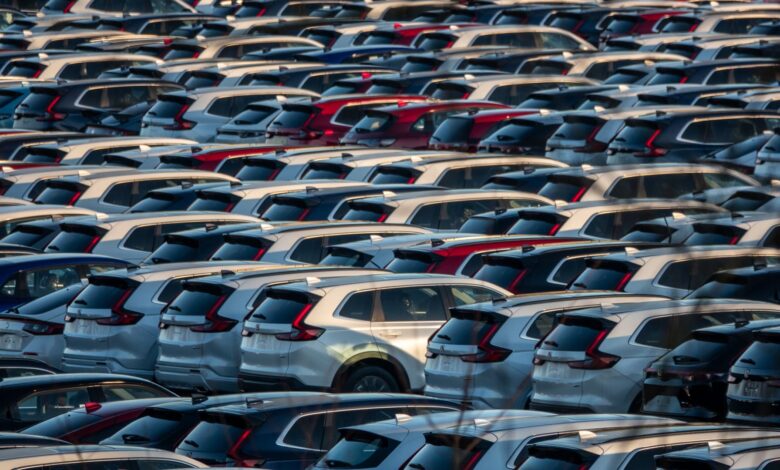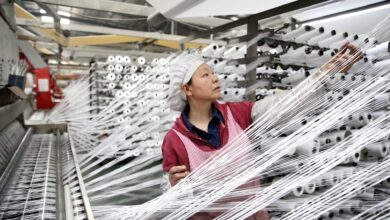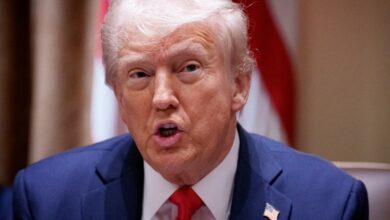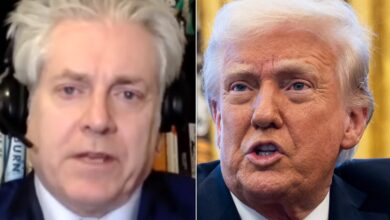Shares of Asia’s automakers fall as Trump announces 25% tariffs on car imports

Brand new Honda cars, fresh off the boat and waiting to be registered, are lined up in a storage yard at the Port of Bristol near Bristol, England.
Photo by Anna Barclay | Getty Images
Stocks of Asian automakers took a hit following the announcement by U.S. President Donald Trump regarding tariffs on cars manufactured outside the U.S.
Major Japanese automakers like Toyota and Honda saw their stocks drop by 3.69% and 2.91% respectively. Nissan declined by 2.92%, while Mazda Motor experienced a 6% drop. Mitsubishi Motor also fell by 4.9%.
Kia Motors of South Korea, with a manufacturing plant in Mexico, saw a 2.76% decline in its stock. Chinese automakers Nio and Xpeng experienced drops of 3.94% and 1.97% respectively.
These new tariffs are set to come into effect on April 2. White House official Will Scharf explained that the tariffs will affect “foreign-made cars and light trucks,” on top of existing duties.
Details of the proclamation are still unclear, given that cars typically contain parts from multiple countries.
It is estimated that these tariffs will generate over $100 billion in new annual revenue for the U.S., according to Scharf.
“Every automaker selling vehicles in the U.S. relies on global supply chains for automotive parts, many of which come from China,” stated Karl Brauer, executive analyst at iSeeCars.
“Even if Honda or Toyota assembles a model in the U.S., the inclusion of Chinese parts will increase production costs,” Brauer added, noting that these costs could impact profits or be passed on to consumers through higher prices.
Vehicles manufactured in the U.S. will also be affected, to a lesser extent, depending on their reliance on foreign parts, explained the analyst.
“No U.S. automotive retailer will be immune to the repercussions of these tariffs,” Brauer emphasized.
European Commission President Ursula von der Leyen criticized the tariffs on social media platform X and assured that the European Union will continue to seek negotiated solutions while safeguarding its economic interests.
“The fact that it’s a signed executive order makes it a little stronger than we anticipated,” remarked Joseph McCabe, CEO and President of AutoForecast Solutions.
“It seems unlikely that these tariffs will be reversed before April 2. We can expect them to remain in effect for a few weeks, if not a month, causing significant disruptions during that period,” he concluded.





